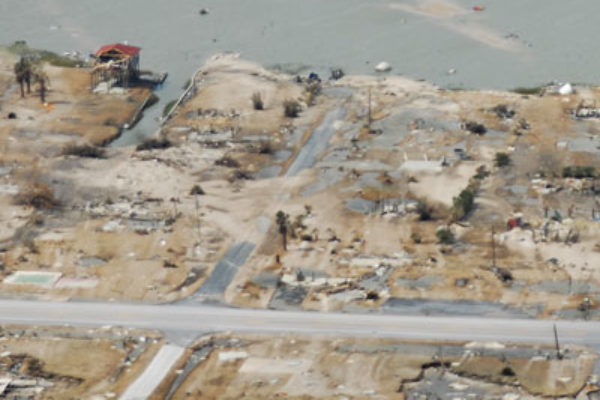The 2018 hurricane season is here, and Texans know just how bad things can get. Last year, Hurricane Harvey brought devastating flooding to housing on the Texas Gulf Coast. Since then, some things have improved for lower- and middle-income residents in the flooded areas. But other things remain unchanged.
If another catastrophic storm strikes this year, it could be devastating. Houston city officials must take more steps now to ensure that the city’s lower- and middle-income residents receive faster short-term financial and housing assistance after a major storm. Failing to act will almost guarantee that a hurricane strike this season will exacerbate Harvey’s lingering problems.
Housing in Houston is affordable relative to other major U.S. cities. Still, it continues to be one of the most economically segregated cities in America. It had a limited supply of affordable housing before Harvey, and that housing is disproportionately located in areas prone to flooding.
Approximately one-third of the total housing stock in Houston was damaged or destroyed by Harvey’s floods, and approximately 25 percent of the area’s housing for Houston’s poorest residents was damaged. Although upper-income neighborhoods also flooded, upper-income Houstonians recovered fairly quickly because they were more likely to have flood insurance and less likely to live in flood-prone areas.
Homes in lower- and middle-income neighborhoods are disproportionately more likely to be built in flood-prone areas. Many of these neighborhoods have crude flood systems, sometimes little more than ditches, that could not adequately protect the residents or their homes from flood waters. Residents in these neighborhoods were less likely to have flood insurance, but they suffered more damage than residents in higher-income neighborhoods that had better storm water management systems.
Although it is not possible to completely “flood-proof” Houston, city leaders recently took a step in the right direction to make some homes less likely to flood. Over the objections of some local businesses, the city enacted regulations that require that new buildings in floodplains be built at higher elevations. It is a good first step, but these regulations affect only new construction and do nothing for the residents of existing housing who live in floodplains that almost certainly will flood again.
The city has another opportunity to take a big step to improve the housing choices for its moderate-income residents.
Houston is allocated to receive $1.15 billion in federal housing aid and must use at least 70 percent of the funds to help families who earn no more than 80 percent of the area’s median household income, or about $60,000 for a family of four. Houston also must use the funds to remedy the “unmet” housing needs of families who received aid from other federal agencies but whose lives and homes still have not been restored to normal.
Houston has proposed to use $600 million to help owners repair or build single-family homes and $375 million to repair or build apartments or small rental properties. The plan, which still needs federal approval, also proposes to use $40 million to buy out single- and multi-family properties that have repeatedly flooded and to allocate $23 million for planning and $20 million to increase staffing.
Without waiting to see whether the U.S. Department of Housing and Urban Development will approve its plan, Houston must ensure that its buyout program is transparent and that it operates efficiently so fewer homeowners will feel compelled to sell their homes quickly, and likely at a loss, to a real estate investor.
Likewise, homeowners should be able to quickly and easily navigate their way through post-recovery relief programs. For example, homeowners who participated in the state-funded Partial Repairs and Essential Power for Sheltering (PREPS) program, which hires contractors to make basic and temporary emergency repairs, expressed concerns post-Harvey about the quality of the repairs and whether they were even eligible to participate in the program.
Flood victims should never be forced to endure delay, confusion and nontransparency. Houston leaders must allocate adequate funding and staffing to make the region’s post-recovery relief programs more efficient.
Another catastrophic flood is inevitable. Rather than take a “wait and see” approach, Houston leaders must ensure that lower- and middle-income residents have greater access to housing that can protect them from the next devastating flood. Lives are on the line.
Mechele Dickerson is a University Distinguished Teaching Professor and the Arthur L. Moller Chair in Bankruptcy Law and Practice at The University of Texas at Austin.
A version of this op-ed appeared in the Houston Chronicle.
To view more op-eds from Texas Perspectives, click here.
Like us on Facebook.




